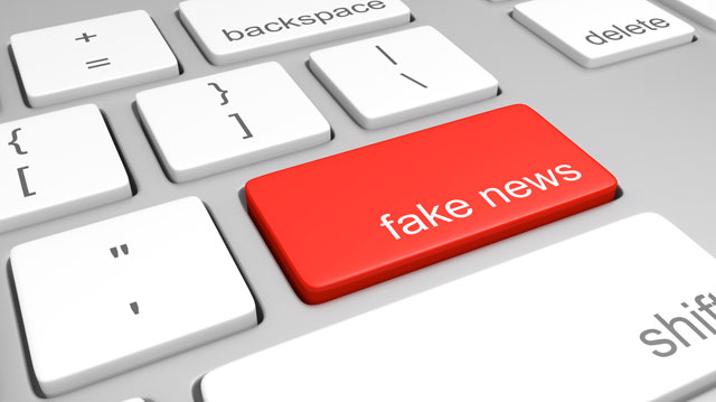
Welcome to the media’s newest, and most impenetrable moral maze: otherwise known as the fake facts challenge. On the surface, this eddying controversy ought to be as simple as the real facts that gave it birth – a few entrepreneurial teenagers in a Macedonian village amusing themselves by inventing and posting weird tales about the American election. Tales that turn out to have gained a lot of traction and, maybe, only maybe, have helped push Donald Trump to victory. Lies spread: lies believed. But all this is a mere beginning and in no way the end of an affair spinning out of control.
Britain’s Labour Party announces an inquiry into the whole business (which, magically, includes the treatment of Labour by right-wing newspapers). The BBC sets up a fake fact spotting unit – the Reality Check team – to join in the third-party hunts for duff info already hastily instituted by Facebook itself. Thereupon the House of Commons culture select committee announces its own grand inquiry, one that includes definitions of pure fakery, tabloid fakery and other potential categories. Universities set real researchers to work. Pundits toil overtime.
Donald Trump – the fountainhead of fake – himself turns on the “disgrace” of such information for vamping up a profusion of charges against him – and then, in office, produces a startling flow of falsities of his own. Pretty soon, no-one quite recalls where this all started, what the fakery was that began the whole imbroglio. It is a very tangled web indeed.
Note in tandem, moreover, that the entire unrolling landscape of digital first is subject to sudden convulsions, swiftly forgotten. Indeed, that the brief history of digital consists of cancel-my-last-announcement moments: over native ads, programmatic ads, revenue streams, tablets, laptops and the rest. What comes around now tends to go around pretty rapidly.
So, a few months in, fake facts may now be almost anything you don’t agree with. They may, apparently, dog Fleet Street’s reporting of Jeremy Corbyn – or Brexit, Brexit, Brexit. They include what’s written, positively or negatively, about President Trump. They are the curse of modern journalism, a stick to beat every reporter’s back. They are whatever you choose to make them, something of a fake controversy. If, that is, you’re not lost in the maze already.
Platform or publisher?
One central issue really matters though. It is the evolving nature of social media’s reigning giants: Facebook and Google, predicted to mop up 90% of digital advertising growth between now and 2020. They’re huge. They’re pending nemesis for newspapers and their websites which depend on advertising for survival. But are they, as Facebook claims, merely platforms that carry material from A to B? Innocent messenger services that happened to catch a dose of Macedonian flu. Or are they, more practically, publishers operating and competing under false colours? Do they edit what they publish? If they do, shouldn’t they be subject to the same ethical constraints and legal penalties that more ordinary publishers have to bear?
You can, I think, feel the vice of practicality beginning to close over Silicon Valley. So, news on Facebook’s Instant Articles is sorted by algorithms not toilers in green eyeshades. But men and women still write those algorithms. So, Facebook and Google are already recruiting journalists. Of course: they need that judgment. And Facebook has established a training fund to educate its users in telling the difference between false and factual. Sites designated false by readers may lose the advertising that gives them life. Competitors such as Snapchat are proposing still more draconian regimes. There is, in short, something that can be done.
The big question, in a way, seems asked and answered already then. The world’s great social media distributors are more than just platforms. They edit their advertising and can edit their content. Their human algorithms are no different essentially to a newspaper sub choosing which letters to the editor to print. They can pick which sites to accommodate on the platform and drop those they don’t like, just as editors can hire or fire columnists. They believe in reader education. Cry “amen” to that. They are seemingly relaxed about airing a wide range of views. But so are the Times and the Guardian.
Damien Collins, the new chair of the Culture, Media and Sport select committee, begins to ask the right questions. “If platforms like Facebook are the prime distribution tool for fake news, then what can Facebook do to combat that, to identify and flag up the stories that are fake? They’re not just platforms, they have a social responsibility too. I think it’s important for democracy to understand how this works”, he told the Guardian the other day.
Told you so
And the fact is that there’s a pretty definitive answer in place already. Will Lewis, the CEO of Dow Jones, lays it on the line (for The Drum) as clearly as anyone. “We kept warning them (Facebook and Google), saying ‘This is an accident waiting to happen – you are treating fake news in the same way as you are treating Wall Street Journal news. This is going to end up biting you.’ And so here it is, biting them!” The heat is on.
Now, let’s be honest about such issues of praise and blame. They are in themselves matters of opinion or instant conjecture. (Actual evidence of election-turning lies rather eluded researchers at Stanford University seeking simple cause and effect). They are damned convenient because they chime neatly with other issues that newspapers are already alarmed about. Will Lewis again. “The digital advertising revenue that we (news organisations) had all been forecasting has been ‘half-inched’ by Facebook and Google. They have taken the money to advertise around our content. It’s wrong and it has to stop.”
Even advertising revenue at the mighty Wall Street Journal is down 21% year-on-year. Doom looms. “Guys, you are killing news, you are killing news and you have got to recognise this.” Facebook and Google are not the industry’s salvation. That was a 2014 anthem. They are its 2017 downfall. A dirge. And the fake news row, amplified by self-interest, is a great chance to puncture their ballooning confidence, to bring them down to earth – singing hallowed songs of trust and responsibility, the underpinning of “proper news” rather than confected tat.
Nevertheless, there are principles in play here that can’t be simply brushed to one side. Is it time to recognise that social media, already spreading over 50% of US news coverage every day, are as responsible for the impact of that information as the editor of the Daily Express or the Mail? Isn’t it the moment to sweep existing categories from the table and start again?
Time for a rethink?
This is a pell-mell era that sees most of newspapering’s old verities torn to shreds. Advertising, in print or on the web, stalls then collapses. Newsrooms shrink and shrink again. And meanwhile – up above – lawmakers try their own squeeze. More codes, more regulators, perhaps more arbitration cases. All of which, apart from anything else, is more cost and bureaucracy in Leveson mode. That might be supportable if newspapers and their websites retained a grip on public debate. But that weakens month by month as circulations and staffing ratios shrink. The hole at the heart of Leveson’s thinking has never been more obvious.
The distinguished judge and his advisors four years ago didn’t know what to make of the internet. They left it out of their equation because print news was somehow more authoritative, and therefore worthy of restriction. Nobody placed much credence on what they read on the net, they said.
Whether you think fake news a great menace or not, that complacent view clearly doesn’t hold good today. How do you address it in realistic terms? Snapchat, swift off the mark in a campaign for fact checking and sober headlines, shows what can be done in current circumstances. Facebook and Google can trundle on behind. But the line between platform and publication doesn’t truly hold. Facebook could, if it wished, fact check for itself on a massive scale and exclude sites that break its rules. It could act more openly as an editor – and sub-editor, scrolling through texts to achieve clear standards.
That won’t help its driving economic motivation – more clicks, more views, more money – though; phoney news is prime clickbait, as Trump followers showed through last year’s election campaign. The “open web” dies here. Nor will it be remotely easy to implement. Just think of the stick Facebook took last year when it refused to run a famous Vietnamese war picture because a child in it was naked – a guideline too far, enforced without thought. Drawing the giants of social media inside an editorial big tent carries all sorts of problems too.
But what’s absolutely clear now – as so often in digital evolution – is that the situation we have cannot hold. The net can, in crude technical terms, be controlled. China has found out how do that. The net can therefore be edited: sympathetically, liberally, but still edited. If we want to clamp down on fake news, then we can edit it out. But do we, equally, see a world where two or three great editing machines shape the news we receive: the world according to Facebook?
This is the conundrum that a few Macedonian kids and Donald Trump have dumped on our doorstep – a conundrum of open and closed minds, education and credulity, freedom or possible repression. The instant controversy we see may be flimsy when we look hard. But the dilemmas it raises are far from fake.










